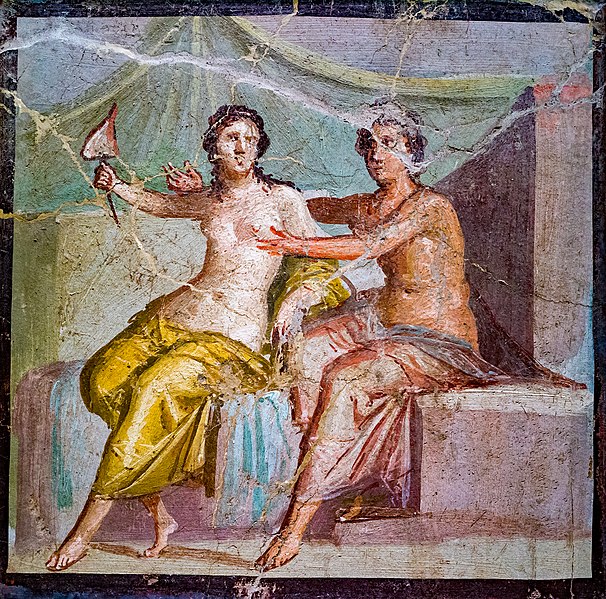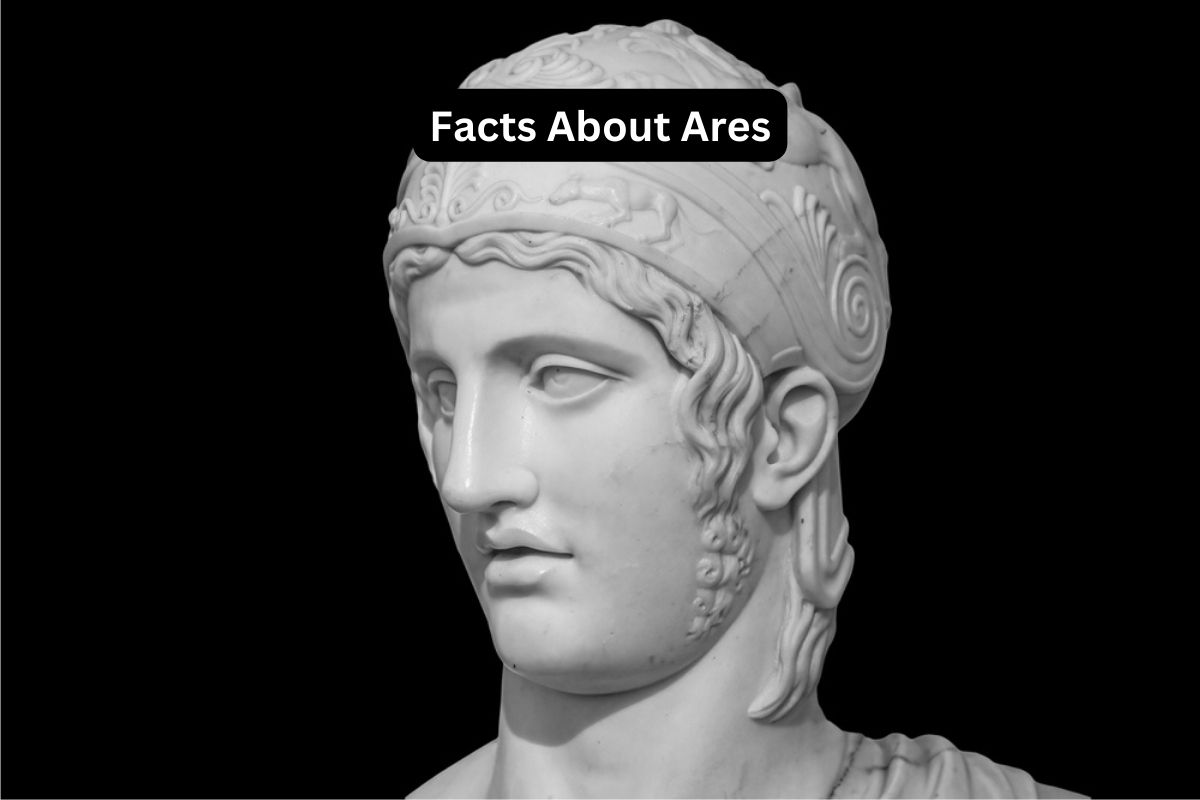Ares, known as Mars in Roman mythology, is a prominent figure in ancient Greek mythology as the god of war. He was born as the son of Zeus, the king of the gods, and Hera, the queen of the gods.
Often depicted as a fierce and bloodthirsty warrior, Ares personified the violent and chaotic nature of war.
Despite his role, Ares was not highly esteemed by the ancient Greeks, who favored strategic warfare and wisdom over his impulsive and brutal approach.
Ares had a twin sister named Eris, the goddess of discord, and he had significant relationships with Aphrodite and the Amazons.
Associated with symbols such as armor, weapons, and the vulture, Ares’ Roman counterpart, Mars, held a similar position in Roman mythology.
Ares Facts
1. Ares is the Greek god of war
Ares was a prominent deity in ancient Greek mythology, specifically associated with the aspects of war, conflict, and battle. He personified the brutal and violent nature of war, embodying its destructive power and chaos.
Also Read: Facts About Hades
Ares played a significant role in the pantheon of Greek gods, representing the primal and raw force behind warfare.

2. He is the son of Zeus and Hera
Ares was born to Zeus, the king of the gods, and Hera, the queen of the gods. As a member of the Olympian gods, Ares held a significant position within the divine hierarchy.
His parentage connected him to the powerful lineage of gods and goddesses who ruled over various aspects of the world.
3. Ares had a twin sister named Eris
Ares had a sibling relationship with his twin sister, Eris, who was the goddess of discord and strife. Both Ares and Eris embodied the tumultuous and disruptive nature of war.
Also Read: Artemis Facts
Eris was often portrayed as delighting in the chaos and disharmony that came from conflicts, complementing Ares’ representation of the physical and violent aspects of warfare. Together, they personified the destructive forces that accompany battles and disputes.
4. He was often depicted as a fierce and bloodthirsty warrior
Ares was commonly portrayed as a relentless and aggressive warrior in ancient Greek mythology. He embodied the raw, uncontrolled aspects of warfare, reveling in the chaos and violence that accompanied battles.
Ares was frequently depicted in artwork wearing armor and wielding weapons such as spears, swords, or shields, emphasizing his role as a fearsome combatant.
5. Ares was not highly regarded by the ancient Greeks
Despite being a god, Ares did not receive the same level of respect and reverence as some of the other Olympian deities.
The ancient Greeks viewed war as a necessary evil rather than a noble pursuit, and they valued strategic warfare and wisdom over Ares’ impulsive and brutal approach. This led to a general perception of Ares as a destructive and somewhat dishonorable figure.

6. He fathered Deimos and Phobos with Aphrodite
Ares had a notable relationship with Aphrodite, the goddess of love and beauty. Their union resulted in the birth of two sons, Deimos (meaning terror) and Phobos (meaning fear). In Greek mythology, these two figures personified the dread and horror that often accompanied war.
They were depicted as attendants of their father, accompanying him on the battlefield and spreading fear among mortals and gods alike.
This connection between Ares and Aphrodite added a layer of complexity to Ares’ character, as he was often depicted as both a lover and a warrior.
7. Ares had children with mortal women, including Harmonia
In addition to his divine offspring, Ares also had children with mortal women. One notable child of Ares was Harmonia, who became the wife of Cadmus, the legendary founder of Thebes.
Harmonia was known for her beauty, and her union with Cadmus was seen as a harmonious blending of mortal and divine bloodlines.
Their marriage was celebrated as a symbol of the union between warring factions, showcasing Ares’ influence over both conflict and reconciliation. Harmonia’s descendants played important roles in Greek mythology, further intertwining the mortal and divine realms.
8. He had a contentious relationship with his sister Athena
Ares and Athena, the goddess of wisdom, warfare, and strategic warfare, were often portrayed as rivals.
While both deities were associated with war, they represented different aspects of it. Athena symbolized disciplined warfare, strategy, and skill, while Ares represented the violent and chaotic nature of battle.
Their differing approaches to war led to frequent conflicts and clashes, with Athena usually emerging as the more skilled and victorious combatant.
9. Ares was associated with the Amazons
In Greek mythology, Ares had a special connection with the Amazons, a tribe of warrior women. According to some versions of the myth, Ares had a passionate love affair with the queen of the Amazons, Hippolyta.
Their relationship resulted in the birth of a son named Hippolytus. Ares’ association with the Amazons further emphasized his connection to warfare and warrior cultures.
10. His Roman counterpart is Mars
In Roman mythology, Ares was equated with the god Mars. Like Ares, Mars was the god of war and had a similar role in Roman culture. Mars was regarded as the father of Romulus and Remus, the legendary founders of Rome, which further elevated his significance in Roman mythology.
The association between Ares and Mars highlights the influence of Greek mythology on Roman culture and the parallels between the two deities across different civilizations.
